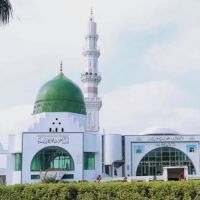Jamia Masjid Eid Ghah Introduce
For the Muslim community of Gujrat, Punjab, and indeed across Pakistan, the mosque holds a central place in daily life, serving not only as a house of worship but also as a vital hub for community gathering, spiritual guidance, and educational pursuits. These sacred spaces are where individuals connect with their faith, find solace, engage in communal prayers, and strengthen their bonds with fellow Muslims. In a city as vibrant and historically rich as Gujrat, the presence of well-maintained and accessible mosques is paramount to the spiritual well-being of its residents. Among the many revered places of worship, Jamia Masjid Eid Gah stands as a significant landmark, diligently serving the spiritual needs of our beloved community. This article aims to provide a comprehensive overview of Jamia Masjid Eid Gah, highlighting its role and why it remains a cherished and suitable place for local Muslims. As one reviewer eloquently puts it, "Golestan-e-Pishway of Ahl-e-Sunnat, may God have mercy on him ❤️❤️," indicating its deep spiritual significance for many.
In Pakistan, mosques, particularly "Jamia Masjids" (central mosques), are not merely prayer halls. They are often multi-faceted institutions that play a broader role in community life. They host daily congregational prayers (Salat), particularly the important Friday congregational prayer (Jummah), and serve as a central location for Eid prayers (Eid al-Fitr and Eid al-Adha), which draw large numbers of worshippers. Beyond prayers, many mosques offer religious education classes for children and adults (Dars-e-Quran, Hadith), provide spaces for community discussions, host charitable activities, and serve as points of contact for various social services. The term "Eid Gah" specifically denotes a large open ground or area traditionally used for Eid prayers, signifying that this mosque likely has ample space to accommodate large gatherings, reinforcing its importance during major Islamic festivals. Jamia Masjid Eid Gah in Gujrat fits into this vital role, contributing significantly to the spiritual and social fabric of the city by providing a dedicated and welcoming space for its Muslim inhabitants to practice their faith and foster community bonds.
Jamia Masjid Eid Gah is conveniently located at H2CP+9F2, Gujrat, Pakistan. For the residents of Gujrat and its surrounding localities within Punjab, this address signifies excellent accessibility. Gujrat is a prominent city, and its urban infrastructure, including road networks, generally allows for easy navigation.
The mosque's central location within Gujrat makes it highly practical for local worshipers. For many, the mosque is within easy walking or short commuting distance, whether by rickshaw, motorbike, or local transport. This close proximity is a significant advantage, encouraging regular attendance for daily prayers and particularly for the important Friday and Eid prayers, which draw larger congregations. For those coming from adjacent areas or other parts of the city, Gujrat's well-developed public transport system ensures that the mosque is readily accessible. The location within the city ensures that Jamia Masjid Eid Gah is deeply integrated into the community's daily life, fostering stronger connections among worshipers. This accessibility underscores the mosque's role as a vital local spiritual resource, providing a convenient and welcoming place of worship right at the doorstep of the Muslims it serves. Its presence within the fabric of Gujrat means that spiritual practice and communal gathering are tangible, daily realities for its residents.
Jamia Masjid Eid Gah, as a central mosque in Gujrat, provides a comprehensive range of spiritual, educational, and communal services for the local Muslim population. While specific offerings may vary and are typically managed by the mosque committee or local religious leaders, a Jamia Masjid of its standing generally offers:
- Five Daily Congregational Prayers (Salat): Facilitating the regular performance of the five prescribed daily prayers in congregation, a cornerstone of Islamic practice.
- Friday Congregational Prayer (Jummah): Hosting the important weekly Friday sermon (Khutbah) and congregational prayer, which is a major gathering for the Muslim community.
- Eid Prayers: As an "Eid Gah," it is specifically designed to accommodate large congregations for the Eid al-Fitr and Eid al-Adha prayers, which are central to Islamic festivities.
- Islamic Education (Dars): Regular lessons and discourses (Dars) on the Quran, Hadith, Fiqh (Islamic jurisprudence), and other religious sciences, providing spiritual and intellectual enrichment for adults.
- Children's Quranic Education (Nazra & Hifz): Classes for children to learn to recite the Holy Quran (Nazra) and potentially to memorize it (Hifz), often during evenings or weekends.
- Nikah (Marriage Ceremony) Services: Facilitation of Islamic marriage contracts and ceremonies, serving as a focal point for significant life events within the community.
- Funeral (Janazah) Prayer Facilities: Providing space and often coordination for funeral prayers, offering support and a communal gathering for condolences during times of bereavement.
- Community Gatherings and Events: Hosting various religious events, such as Milad un Nabi (celebration of the Prophet's birthday), Shab-e-Barat, and other Islamic observances, fostering communal harmony and spiritual reflection.
- Iftar Arrangements (during Ramadan): During the holy month of Ramadan, the mosque may organize communal Iftar (breaking of fast) meals, strengthening community bonds.
- Wudu (Ablution) Facilities: Well-maintained and accessible ablution areas for worshippers to perform ritual purification before prayers.
Jamia Masjid Eid Gah in Gujrat distinguishes itself through several key features that enhance its role as a spiritual and communal hub:
- Spiritual Significance: The review describing it as "Golestan-e-Pishway of Ahl-e-Sunnat" (Garden of the Leaders of Ahl-e-Sunnat) indicates its deep spiritual importance and connection to revered Islamic scholars or traditions, suggesting it is a center of orthodox or respected Islamic teachings.
- Capacity for Large Congregations: As an "Eid Gah," it implies a large open space or a capacious prayer hall capable of accommodating thousands of worshippers, particularly crucial during Eid prayers.
- Central Location in Gujrat: Its address in Gujrat ensures easy accessibility for a vast number of local residents, making it a focal point for religious observances and community life.
- Role as a Community Hub: Beyond daily prayers, the mosque serves as a vital gathering place, fostering social cohesion and support networks within the Muslim community.
- Architectural and Aesthetic Appeal (implied): While not explicitly stated, major mosques in Pakistan are often characterized by beautiful architecture, domes, and minarets, contributing to the city's landscape and providing a serene environment for worship.
- Source of Religious Education: Providing regular lessons and Quranic classes for all ages ensures that religious knowledge is disseminated and spiritual understanding is deepened within the community.
- Symbol of Islamic Identity: For the local population, the Jamia Masjid Eid Gah stands as a significant symbol of their religious identity and cultural heritage.
As a mosque and religious institution, Jamia Masjid Eid Gah does not engage in commercial "promotions" or "special offers" in the way a business would. Its primary purpose is to facilitate worship, religious education, and community service, which are offered freely or through voluntary contributions (donations). However, the "special offers" inherent in its operations are invaluable to the community:
- Free Access to Prayer Facilities: The mosque provides a clean, well-maintained, and welcoming space for daily, Friday, and Eid prayers, accessible to all Muslims without any cost.
- Free Religious Education: Many mosques offer free Quranic classes for children (Nazra) and religious discourses (Dars) for adults, providing essential Islamic knowledge without tuition fees. These services are often sustained through community donations.
- Spiritual Guidance: Imams and religious scholars associated with the mosque often provide free spiritual counseling, advice, and guidance to community members on matters of faith, ethics, and personal challenges.
- Community Services and Support: Mosques frequently serve as centers for charitable activities, collecting and distributing Zakat (charity) to the needy, organizing relief efforts, and supporting community members in times of need (e.g., funeral arrangements, basic counseling). These services are typically provided on a voluntary or donation-based system.
- Communal Harmony: By providing a common gathering place, the mosque fosters a sense of unity, brotherhood/sisterhood, and mutual support among community members, which is an intangible but invaluable benefit.
The primary "offer" is the spiritual and communal upliftment it provides, sustained by the generous contributions of the community members themselves. Those who wish to support the mosque's ongoing services can inquire about donation opportunities.
For direct inquiries regarding prayer timings, religious classes, community events, or any other information related to Jamia Masjid Eid Gah, you can use the following address:
- Address: H2CP+9F2, Gujrat, Pakistan
As a mosque, specific public phone numbers are not always widely publicized as communication often happens directly through the Imam or mosque committee members present at the premises. Local residents of Gujrat can typically visit the mosque during non-prayer times to speak with the management or staff for details. Furthermore, community networks and local religious leaders often serve as valuable informal contacts for information regarding the mosque's operations and initiatives.
Jamia Masjid Eid Gah stands as a profoundly suitable and indispensable spiritual and communal center for the Muslim population of Gujrat, Punjab. Its significance extends far beyond being merely a structure; it is a living, breathing heart of the community, serving vital functions that align deeply with the needs and values of local residents.
Firstly, its central and accessible location within Gujrat is a major advantage. This ease of access encourages regular attendance for daily prayers and ensures that the entire community can conveniently participate in larger gatherings, particularly the crucial Friday and Eid prayers. Being situated within the city fabric means the mosque is a readily available spiritual anchor, deeply integrated into the daily lives of its worshipers.
Secondly, the mosque serves as a comprehensive hub for Islamic practice and education. It provides a peaceful and organized space for the five daily prayers, fostering a sense of discipline and spiritual connection. Beyond that, its role as an "Eid Gah" signifies its capacity to host vast congregations for Eid prayers, a vital aspect of communal celebration and unity. The provision of religious education, including Quranic classes for children and spiritual discourses for adults, ensures that Islamic knowledge is continuously disseminated and understood, nurturing faith across generations. This is a critical service for parents who wish to instill strong religious values in their children.
Furthermore, Jamia Masjid Eid Gah acts as a crucial social and welfare center. Mosques in Pakistan often facilitate charitable activities, support community members in times of need (such as funerals), and provide a space for communal solidarity. This fostering of brotherhood and mutual support strengthens the social fabric of Gujrat, making it a more cohesive and caring community. The emotional and spiritual solace it offers is immeasurable, providing a sanctuary for reflection and peace amidst the demands of daily life. The positive sentiment from a local review, affirming its spiritual significance, further underscores its profound suitability.
In conclusion, Jamia Masjid Eid Gah is not just a building; it is a vital spiritual home and a dynamic community hub for the people of Gujrat. By providing accessible prayer facilities, essential religious education, and a focal point for communal solidarity, it profoundly enriches the lives of local Muslims. For residents of Gujrat, it is the ideal place to deepen their faith, engage with their community, and find spiritual peace, contributing significantly to the cultural and religious landscape of Punjab.
Jamia Masjid Eid Ghah Photos
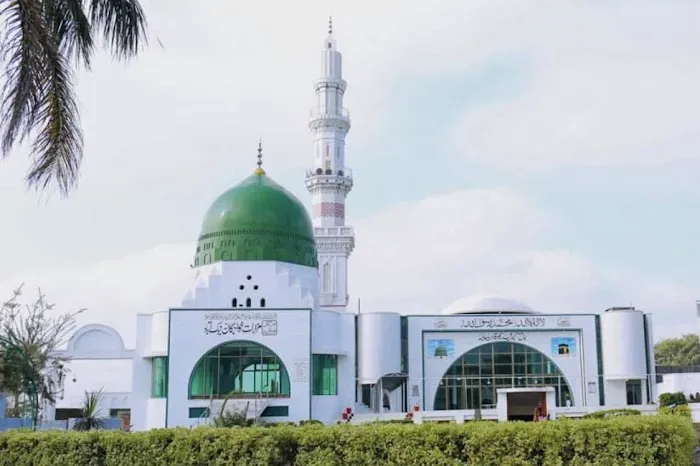
Jamia Masjid Eid Ghah Location
Jamia Masjid Eid Ghah
H2CP+9F2, Gujrat, Pakistan
-
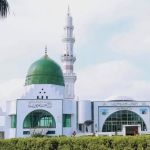 Jamia Masjid Eid Ghah
Jamia Masjid Eid Ghah
H2CP+9F2
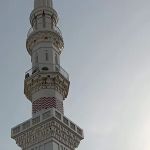 Qadria almia university
Qadria almia university
Murarian Sharif
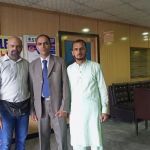 Stars College Gujrat
Stars College Gujrat
Shaheen Chowk
 Superior College Gujrat
Superior College Gujrat
Opposite Service Colony
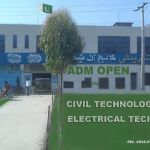 Qureshi College Gujrat
Qureshi College Gujrat
Begum Hospital
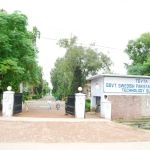 Government Swedish Pakistani College of Technology
Government Swedish Pakistani College of Technology
Service More GT Rd
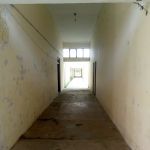 Automation department
Automation department
Automation Technology Building
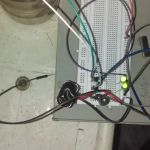 Electronics Department GSPCT Gujrat
Electronics Department GSPCT Gujrat
Service More GT Rd
 Electrical department
Electrical department
H3R2+GG6
 School of Law
School of Law
H3G7+FJG
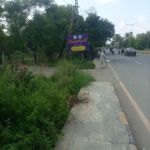 (236) Govt. Associate College For Boys, GT Road Gujrat
(236) Govt. Associate College For Boys, GT Road Gujrat
Govt. Associate College For Boys
 Faran Institute of Technology
Faran Institute of Technology
H3F8+R7W
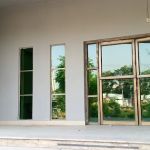 KIPS College Gujrat
KIPS College Gujrat
GT Rd
Jamia Masjid Eid Ghah Reviews
-
Golestan-e-Pishway of Ahl-e-Sunnat, may God have mercy on him ❤️❤️
Apr 26, 2025 · Syed Awais Ahmad Naqvi - Nov 03, 2024 · Shahid
- Mar 15, 2024 · Tamoor Ahmed Ghuman
More University
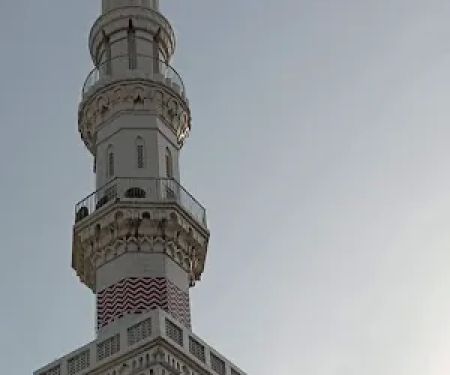 Qadria almia university
4.0 (10 reviews)
Qadria almia university
4.0 (10 reviews)
Murarian Sharif, Gujrat, Pakistan
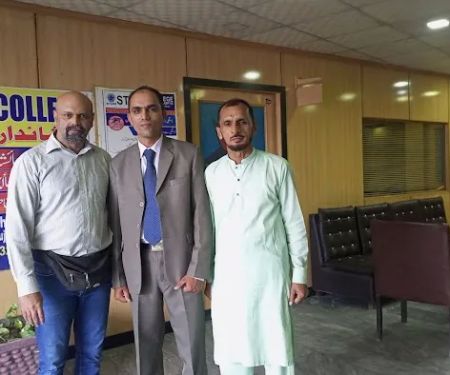 Stars College Gujrat
4.0 (16 reviews)
Stars College Gujrat
4.0 (16 reviews)
Shaheen Chowk, GT Rd, Gujrat, Pakistan
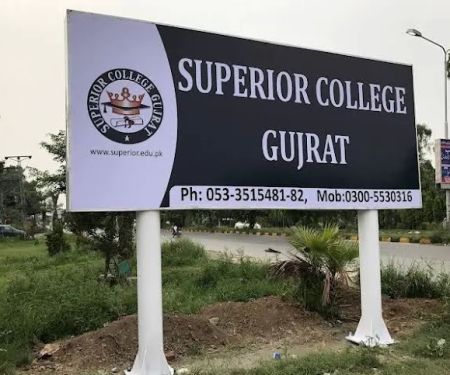 Superior College Gujrat
3.0 (55 reviews)
Superior College Gujrat
3.0 (55 reviews)
Opposite Service Colony, Main GT Rd, near NBP Main Branch, Servis Industries Gujrat, Gujrat, 50700, Pakistan
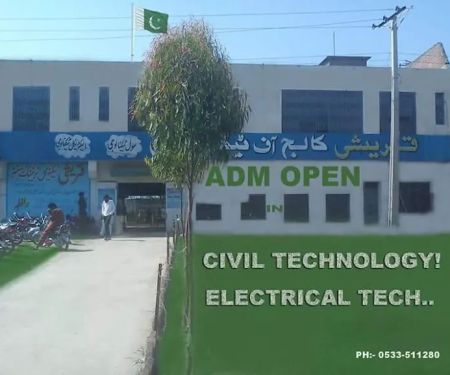 Qureshi College Gujrat
4.0 (7 reviews)
Qureshi College Gujrat
4.0 (7 reviews)
Begum Hospital, GT Rd, Service Mor, H2RX+3J3, Gujrat, 50700, Pakistan
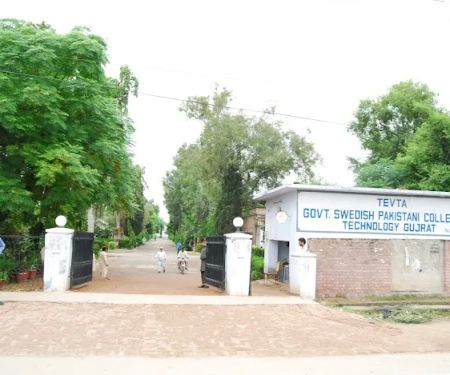 Government Swedish Pakistani College of Technology
4.0 (374 reviews)
Government Swedish Pakistani College of Technology
4.0 (374 reviews)
Service More GT Rd, Shadman Colony, Gujrat, Pakistan
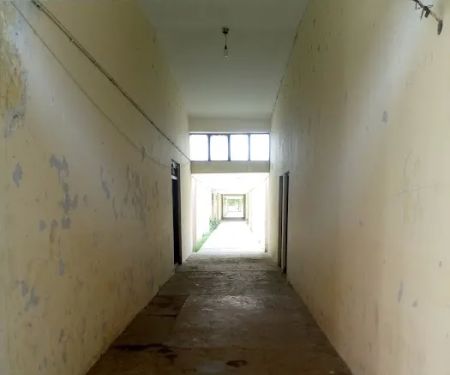 Automation department
0.0 (0 reviews)
Automation department
0.0 (0 reviews)
Automation Technology Building, Shadman Colony, Gujrat, Pakistan
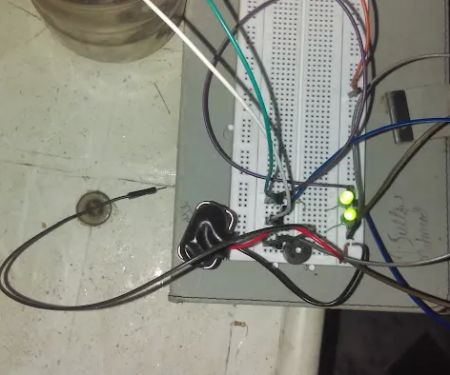 Electronics Department GSPCT Gujrat
5.0 (4 reviews)
Electronics Department GSPCT Gujrat
5.0 (4 reviews)
Service More GT Rd, Shadman Colony, Gujrat, Pakistan
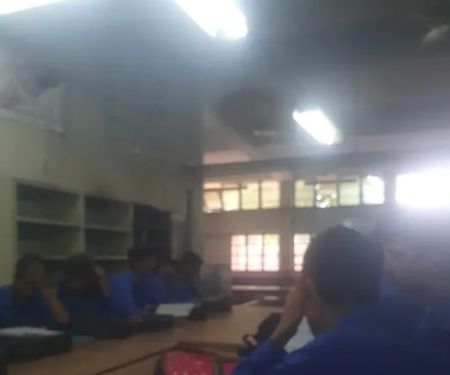 Electrical department
5.0 (1 reviews)
Electrical department
5.0 (1 reviews)
H3R2+GG6, Shadman Colony, Gujrat, Pakistan
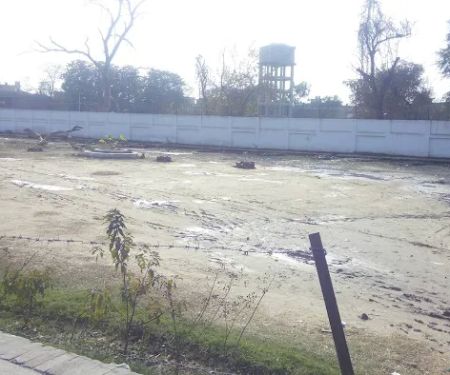 School of Law
4.0 (23 reviews)
School of Law
4.0 (23 reviews)
H3G7+FJG, GT Rd, Jattuwakal, Gujrat, 50700, Pakistan
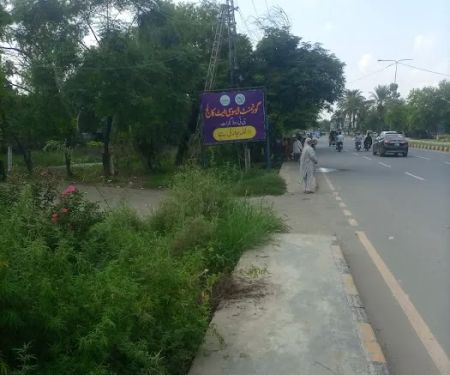 (236) Govt. Associate College For Boys, GT Road Gujrat
4.0 (2 reviews)
(236) Govt. Associate College For Boys, GT Road Gujrat
4.0 (2 reviews)
Govt. Associate College For Boys, 236 GT Rd, Jattuwakal, Gujrat, Pakistan
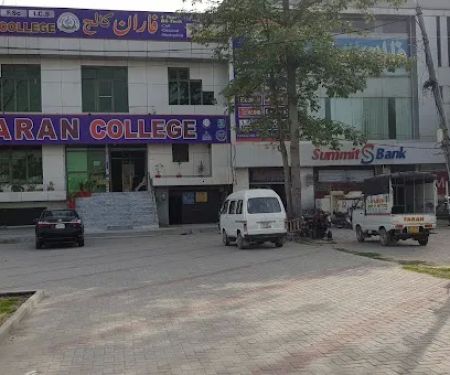 Faran Institute of Technology
4.0 (34 reviews)
Faran Institute of Technology
4.0 (34 reviews)
H3F8+R7W, Faizabad, Gujrat, Pakistan
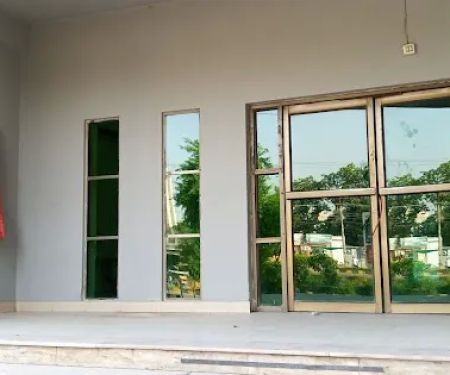 KIPS College Gujrat
3.0 (38 reviews)
KIPS College Gujrat
3.0 (38 reviews)
GT Rd, Faizabad, Gujrat, 50700, Pakistan
Categories
Popular
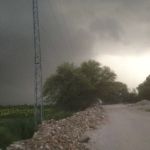 GPS Bandi Oba0.0 (0 reviews)
GPS Bandi Oba0.0 (0 reviews)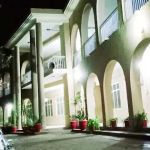 Gov't Boys High School #30.0 (0 reviews)
Gov't Boys High School #30.0 (0 reviews)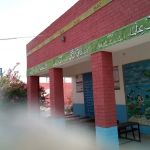 GGPS Dhoke Noor Jamal0.0 (0 reviews)
GGPS Dhoke Noor Jamal0.0 (0 reviews)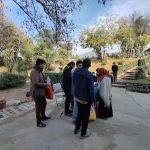 Zoology Department, Quaid-i-Azam University4.0 (10 reviews)
Zoology Department, Quaid-i-Azam University4.0 (10 reviews)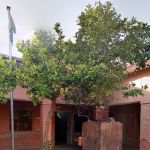 GPS No 1 spinkani0.0 (0 reviews)
GPS No 1 spinkani0.0 (0 reviews)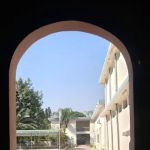 IMSB (I-X) Sangjani FA Islamabad - Blended E-learning - Primary & Middle Components0.0 (0 reviews)
IMSB (I-X) Sangjani FA Islamabad - Blended E-learning - Primary & Middle Components0.0 (0 reviews)Trending Blog Posts
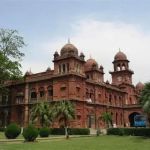 Most In-Demand Degrees in Pakistan 2025 – Top Fields for the Future
Most In-Demand Degrees in Pakistan 2025 – Top Fields for the Future Most In-Demand Degrees in Pakistan – What to Study in 2025 for a Future-Proof Career
Most In-Demand Degrees in Pakistan – What to Study in 2025 for a Future-Proof Career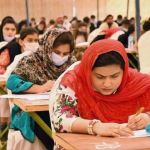 CSS 2025 Registration Deadline Announced by FPSC – Important Information for Aspirants
CSS 2025 Registration Deadline Announced by FPSC – Important Information for Aspirants Pakistan Education Census 2025 to Be Conducted in August: What to Expect
Pakistan Education Census 2025 to Be Conducted in August: What to Expect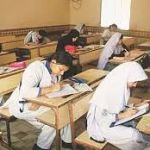 KP Inter Board Results to Be Announced District-Wise: What Students Need to Know
KP Inter Board Results to Be Announced District-Wise: What Students Need to Know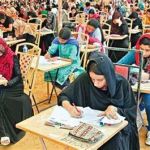 CSS 2025 Registration Deadline Announced by FPSC: Key Details and Preparation Tips
CSS 2025 Registration Deadline Announced by FPSC: Key Details and Preparation Tips 
